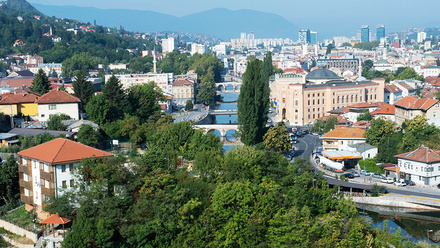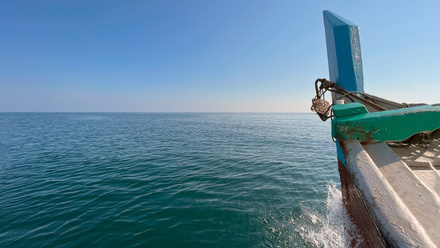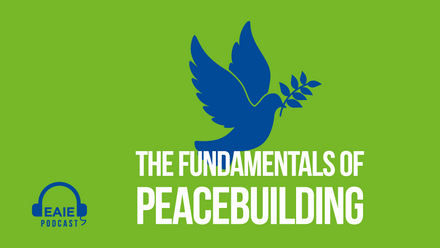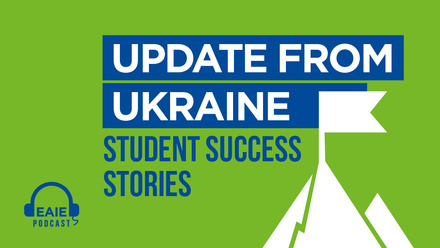Bolder, braver internationalisation in the Southern Mediterranean
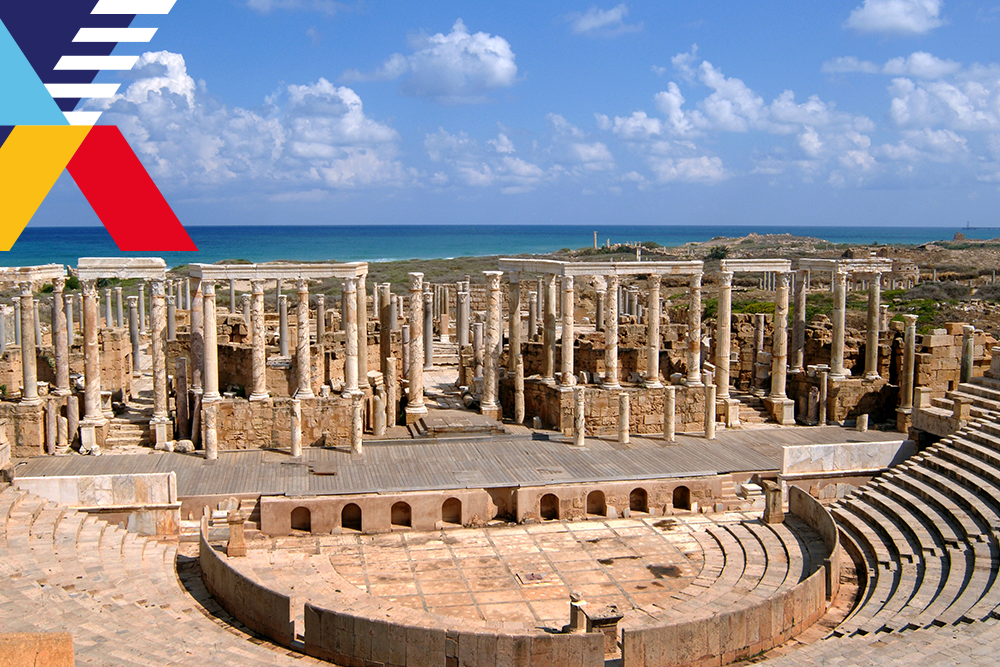
Continuing with the 2021 Conversation Starter series, this essay scrutinises what "boldness" and "braveness" look like in different local contexts. In the Middle East and North Africa region, for example, where crisis and upheaval are often part of daily realities, a bold, brave response is one that not only solves today’s problem but can also weather tomorrow’s storm. A recent wide-ranging study on internationalisation in the MENA region reveals new insights about how the COVID-19 pandemic has impacted the higher education sector and how the region’s recovery may take unique form.
In a region like the Middle East and North Africa (MENA), where internationalisation is mainly (if not exclusively) equated with physical mobility towards Europe and the Global North more generally, it is quite easy to understand the dramatic impact of the 2020–2021 pandemic crisis on local institutions. Indeed, for the MENA region, this has been a new crisis on top of already existing crises: post-war scenarios, economic emergencies, social tensions, political instabilities, and humanitarian disasters such as the 2015 refugee waves. All of these developments have widely affected the MENA region, much of which already struggles with the endemic weakness of its welfare infrastructures.
Being bold and brave in a Western context means to be capable of overcoming occasional crises, taken one by one, in a relatively stable context: that is, being capable to solve case-by-case difficulties. In the MENA region, however, this means having to build up your resilience on a daily basis over the long term. Of course, it is not possible to generalise, but if we think (just as an example) about the last 40 years in the life of an Iraqi professor, the pandemic is only the latest in a long series of crises that have extensively affected his/her life, including the 1980–1988 Iraq-Iran war, the 1990 Kuwait invasion and the resulting First Gulf War, the international embargo, then the 2003 invasion of the country and, finally, the rise of ISIS. Other examples from the region are also indicative: consider the last ten years of turmoil in countries like Egypt and Tunisia, the recent war in Libya, crisis and conflicts in Palestine and so on.
Overcoming adversity through resilience
It is on top of all the above, that the consequences of the ongoing pandemic should be factored in. COVID-19 has caused an intense feeling of isolation, having made it hard for students to attend courses and for all stakeholders to experience the social side of university life. There is also a general feeling that disadvantaged groups have been more severely especially negatively affected. For instance, the dramatic increase in the use of online resources in the last year has exposed a real digital divide, which created significant barriers for some categories of students. The gender gap is another example; this was already evident in the statistics collected by UNIMED for the report, showing few female administrative staff members accessing internationalisation opportunities and, generally speaking (with some exceptions, obviously), higher numbers of males experiencing outgoing mobility from the MENA region. Today, it is still too early to clearly evaluate the long-term impact of COVID-19 mobility restrictions on these gender gap trends and their variations by country, but this is an important area to monitor.
In the MENA region, being bold and brave means building up your resilience on a daily basis over the long term
Far from crushing their hopes for a turn of events, it can be argued that the continuous difficulties faced by people in the MENA region over the years have amplified their resilience and, consequently, their ability to respond positively to the pandemic crisis today.
We all find ourselves in the midst of uncertainties and fears for the future. This is a shared feeling: in Europe as in the MENA region, and likely everywhere in the world. The differences between us lie in the attitude we adopt towards fear. If fear is considered an inescapable part of our life, an integral part of our destiny, then it makes us, hopefully, more resilient and determined in considering every crisis, at the end of the day, as an opportunity. The Arabic-Islamic perception that everything is already written and destinies already decided for each one of us (captured in the Islamic cultural notion of kullu maktub) is partly responsible for the perception of the pandemic as a transitional condition. Accepting one’s destiny does not mean having a passive attitude towards life, but rather being more capable of understanding that negative and positive events are both inextricable parts of the same plan. Accepting destiny does not imply not struggling for a better future, or a better life, but rather quite the opposite: it means being more capable to accept crisis and to use crises as opportunities. One can argue that this can be a useful key in allowing MENA practitioners to even see the COVID-19 pandemic in a ‘positive’ (if we may use this word) light.
Cultural and social differences may therefore require redefining the meaning of “bold and brave”. In this part of the world, the pandemic’s hardship has been diluted among other unavoidable ones, in contexts where the only way to survive is to react. And so, vulnerable and disadvantaged groups are doing just that, such as female academicians and administrative staff who are quickly reinventing themselves trying to find positive aspects in a clearly negative scenario. The same holds for students facing the digital divide and lack of access, refugees living in camps, and colleagues teaching in and from remote areas.
An unwavering thirst for physical mobility…
Indeed, optimism in the face of adversity is one of the key high-level takeaways from a recent wide-ranging study on internationalisation in the MENA region undertaken by the Mediterranean Universities Union (UNIMED) for the Union for the Mediterranean and entitled The internationalisation of higher education in the Mediterranean: current and prospective trends.
This resilience is probably the reason why a Palestinian professor from an-Najah University, when interviewed for the UNIMED report, described the COVID-19 crisis as an opportunity as much as a crisis; an opportunity for testing new forms of partnerships (especially for research labs) in a country where restrictions of movement have always been a fact of life.
Even now, the ‘European dream’ remains intact and aspirations for migration almost unchanged
This is likely why the UNIMED researchers found that MENA students continue to dream about studying abroad, and particularly in Europe, despite restrictions to their freedom of movement. Even now, in a Europe fatigued and strained by the COVID-19 crisis, the ‘European dream’ remains intact and aspirations for migration almost unchanged. MENA youth are ready to go – eager to travel, restart physical mobility and cross borders. This is a huge difference in attitude in comparison with what appear to be the current European perceptions and feelings, where higher education practitioners seem to be indefinitely locked down in online meetings and online courses, and in most cases not ready (or willing?) to resume in-person activities.
The UNIMED report has clearly documented that, in the MENA region, internationalisation is physical mobility and vice versa. This irreducible equation seems to continue to drive the logic of internationalisation in the region, even if the COVID-19 crisis will clearly have some impacts on local higher education systems. For example, the UNIMED research finds that Moroccan universities are ready to prepare a cultural shift “based on the experience gained in this pandemic period” towards “mixing distance learning and face-to-face teaching”, and in Palestine “the growing technological capacities of institutions in the Gaza Strip has recently grown faster ‘thanks’ to the pandemic”. These are just two of many examples.
… that Europe must be ready to quench.
For frontline actors and observers of Mediterranean realities, it is clear that there is pressure coming from the ‘South’, pressure that is increasing on a daily basis. What if MENA youth aspirations remain frustrated by current restrictions? Will they turn to more welcoming systems with no restrictions and no visa problems? As the UNIMED research notes, “[…], China, Saudi Arabia, Turkey and Malaysia are the most active actors in the Mediterranean area, constantly boosting cooperation with Arabic-Islamic countries and higher education institutions (HEIs). These countries are becoming very active actors in the region, gradually replacing historical countries that have always been the main partners in terms of internationalisation and, more specifically, mobility”.
This is why it is necessary to support the role of European and MENA regional university networks, as well as intergovernmental actors such as the Union for the Mediterranean, to promote the international dimension of HEIs – and the important connections between Europe and the MENA region – more than ever before. These networks play a fundamental role in facilitating academic mobility and cooperation at all levels, especially in conditions like the ones we are all facing today. These networks can play a crucial role in re-establishing a ‘new normal’, by resuming positive aspects of the past and including new opportunities learnt from the last two years.
“If a wind blows, ride it!” - إِذا هَبَّت رِياحُكَ فَاِغتَنِمها
(Arabic proverb)
This article is based on the study “The Internationalisation of Higher Education in the Mediterranean. Current and prospective trends” commissioned to UNIMED – the Mediterranean Universities Union – by the Union for the Mediterranean. The views expressed do not reflect the official policy or position of the Union for the Mediterranean.
Questions for discussion
1. How could your university or institution benefit from enhanced partnerships with the MENA region?
2. What measures is your university or institution willing to put in place to ensure that the partnership is on an equal standing?
3. Would your university or institution be prepared to allow physical mobility to and from the MENA region?
4. If mobility is not possible (or must be limited), what other options could be explored that could respond to the needs and desires of MENA students and partners?
5. Do you consider international networks of HEIs to be a resource for the post-pandemic restart of the internationalisation process?


